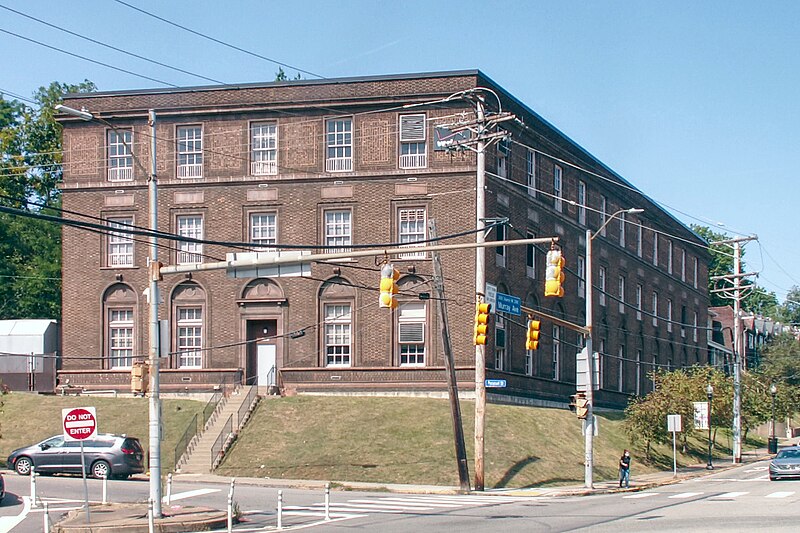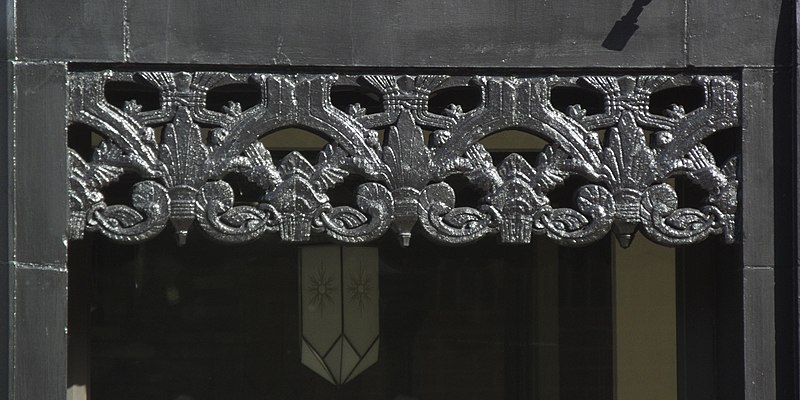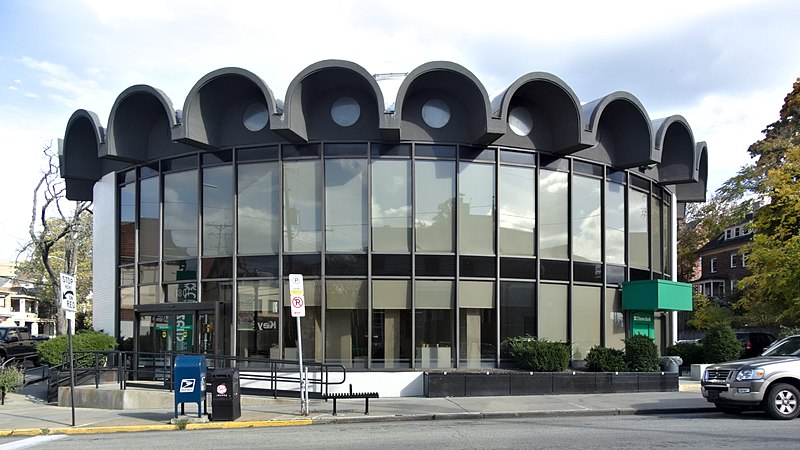
A commercial building and apartment block in the eclectic style popular in the 1920s: it carries a whiff of Spanish Mission, but also a bit of Renaissance. Liberal use of terra cotta enlivens the façade.


Comments

A commercial building and apartment block in the eclectic style popular in the 1920s: it carries a whiff of Spanish Mission, but also a bit of Renaissance. Liberal use of terra cotta enlivens the façade.



The Manor, which opened in 1922, was designed by Harry S. Bair, who did a number of theaters around here (including the Regent, now the Kelly-Strayhorn in East Liberty). As the caption says, it was “a distinct departure from the conventional,” and the Tudor half-timbering of the exterior advertised the sumptuous club-like atmosphere of the interior. Today the exterior has been simplified, and the building expanded, but it still feels like an outpost of Merrie England on Murray Avenue.


This gable on the Darlington Road side of the building still preserves all its intricate diagonal brickwork and half-timbering.

These little chimneys should have their own separate landmark status.
Almost nothing remains of the original interior, though the Manor is still a movie house, now divided into four small theaters. Originally, the lobby was a feast of luxurious furniture and decoration.

And that was just the entrance lobby. If you were meeting someone or just waiting for something, you could retire to the parlor:

There was also a men’s club room with the atmosphere of an old English manor:

After all that, movies seem almost superfluous, but the auditorium was just as luxurious as the rest of the building:

Old Pa Pitt particularly likes the arrangement of tropical plants in the orchestra pit.
Today, although the Manor is still a very pleasant place to take in a movie, almost nothing is left of that sumptuous interior except a bit of ceiling and this fine chandelier:

The 1922 pictures all came from a two-page feature in Moving Picture World for August 5, 1922, and we reprint the text of the article here (making a few silent typographic corrections).
(more…)
One of several round banks Mellon Bank built in the modernist era. It is still a bank, now belonging to Citizens Bank, Mellon’s successor in retail banking.

We also have a less abstract picture of the whole building.

A particularly grand example of the Renaissance-palace school of telephone exchanges. Father Pitt believes that all our Renaissance-palace telephone exchanges were probably done by the same architect, and some day he hopes to find out who it was. (Update: It was probably James Windrim, a well-known Philadelphian who had the Bell Telephone franchise in Pennsylvania for many years. He designed the 1923 Bell Telephone Building downtown, and is known to have worked on other telephone exchanges in our area.)



This Art Deco block of small storefronts and offices on Murray Avenue is in a prosperous district, but the concrete details are decaying, and many have disappeared. The optometrist at the left end, the central entrance to the upstairs offices, and the tailor shop right of center preserve what was probably the decorative pattern of all the storefronts when this building was put up.


This is meant to be the central ornamental focus of the building, but it has been shedding bits and pieces.


From the “form follows function” era of the middle twentieth century comes this round bank. Round is probably the most impractical and anti-functional shape you could come up with for a bank, but modernism sacrificed function for a striking effect much more often than Victorian classicism did. This was built in 1965 for Mellon Bank. It now belongs to Citizens Bank, which bought Mellon’s retail branches when Mellon merged with Bank of New York and decided not to deal with grubby working-class people anymore.
Addendum: The architect was Pittsburgh-based Harry Lefkowitz.